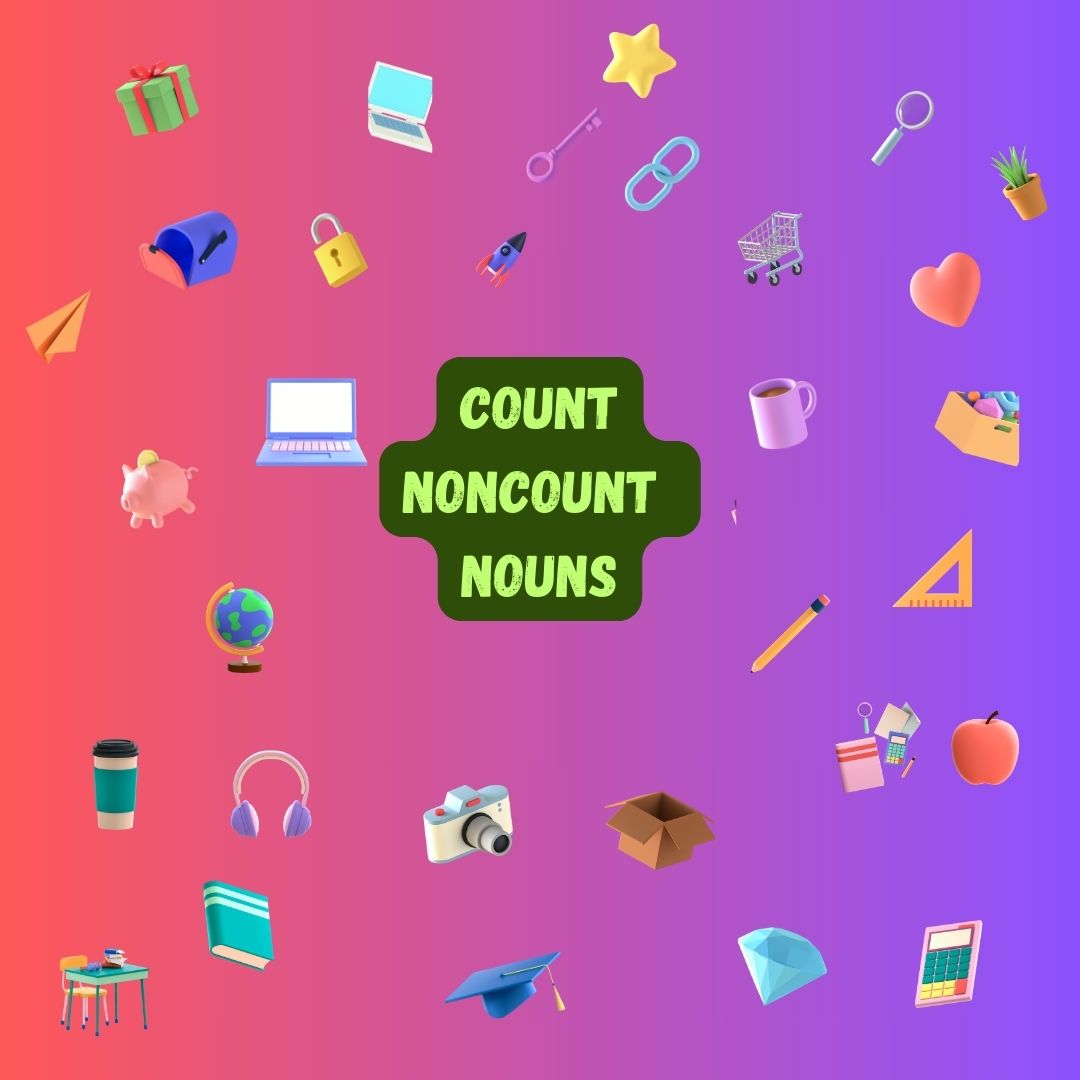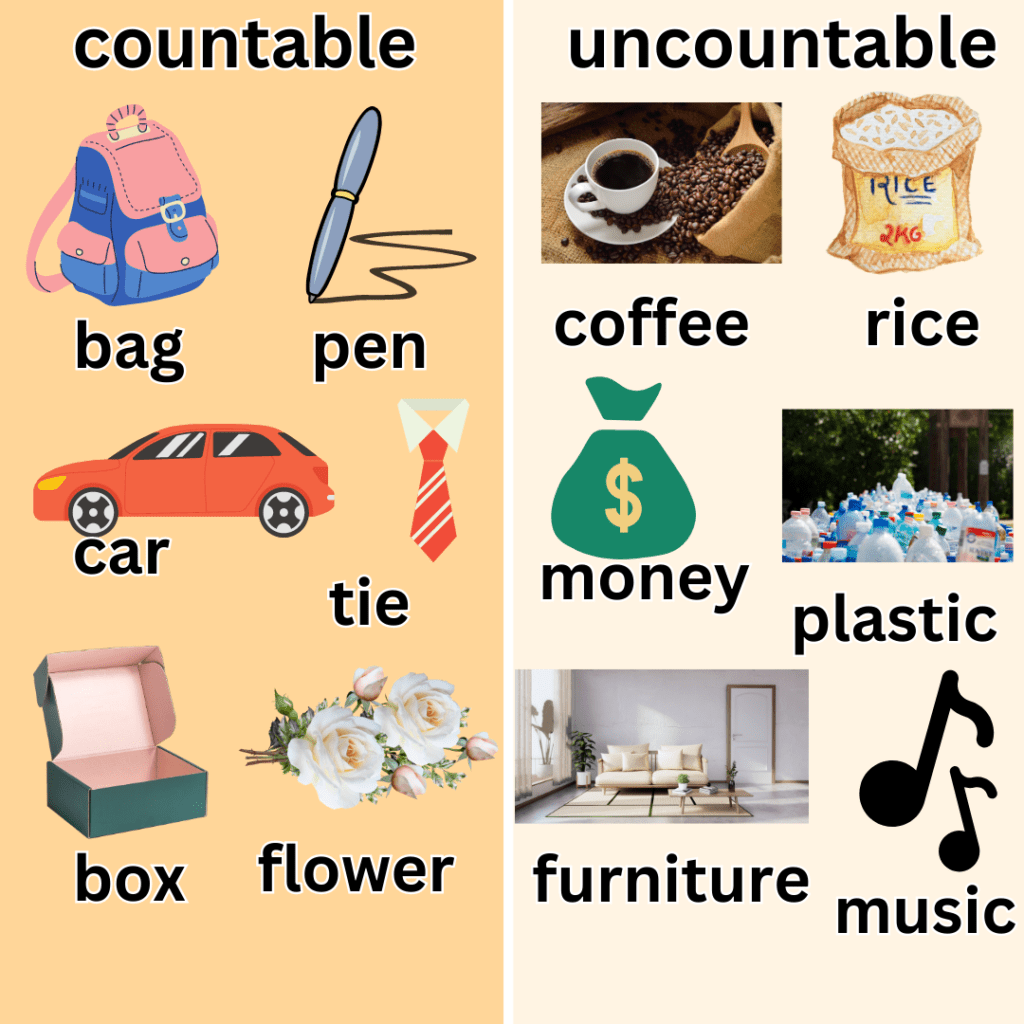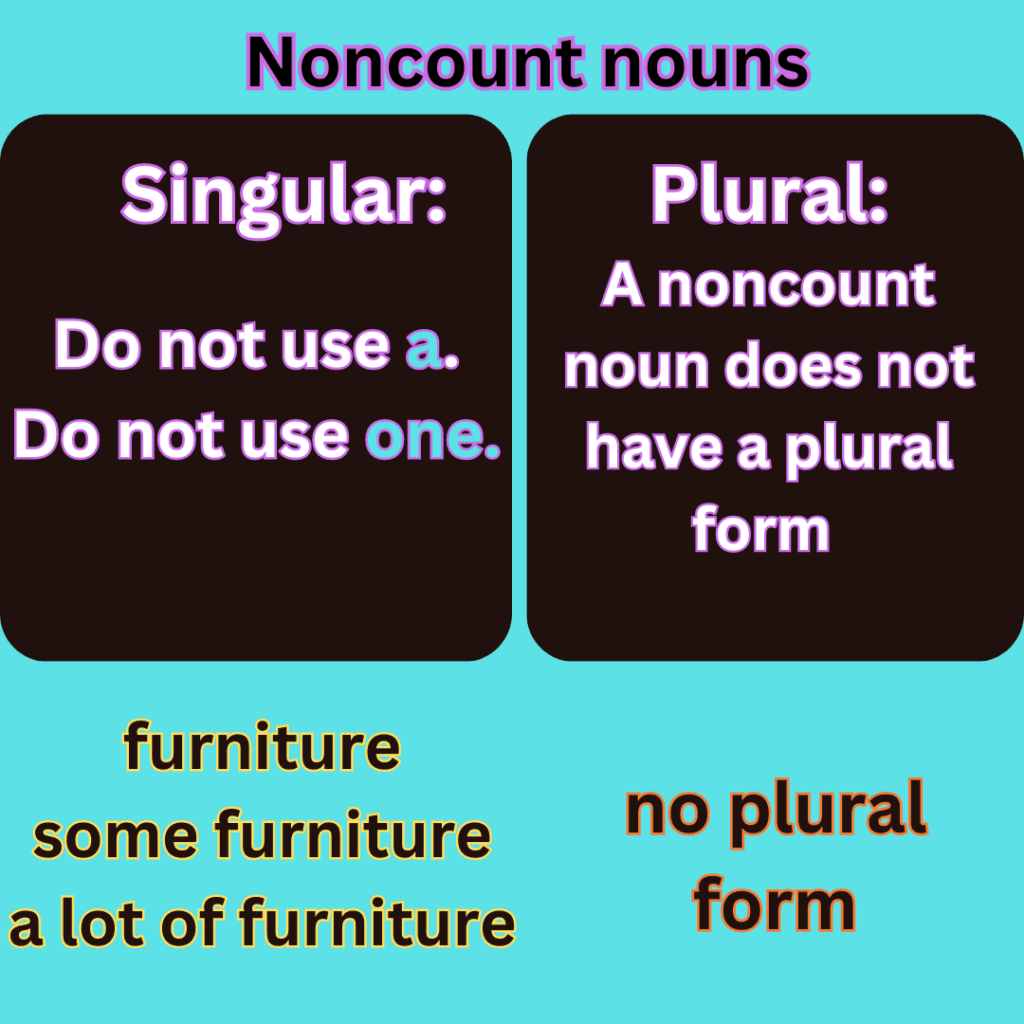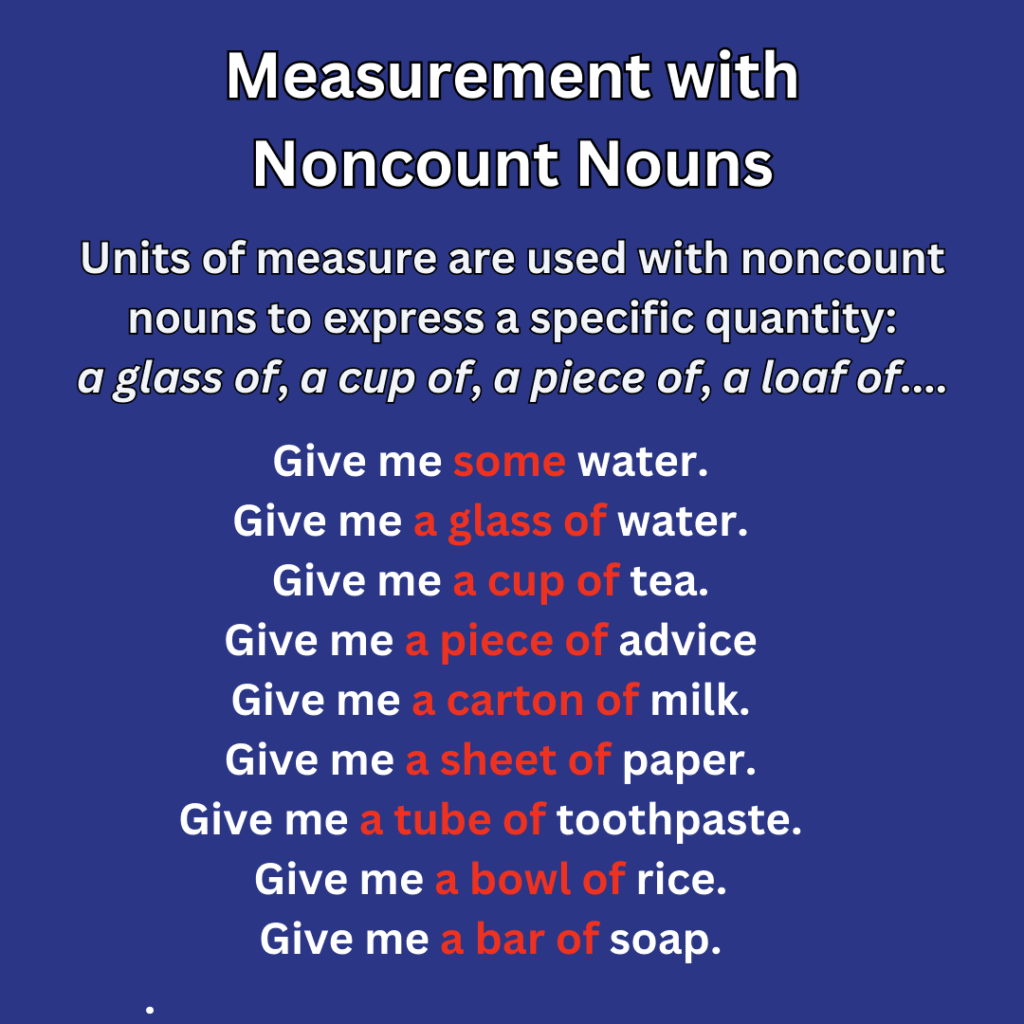Count/Noncount Nouns

Nouns: countable and Uncountable
The Noun is divided into countable and uncountable forms.
Count nouns can be counted; noncount nouns can not be used with a plural verb. Most of the English nouns are countable.

My friend has bought a new car.
My bag is full of books.
My friend has two cars.
These bags are very nice.
My grandfather does not like cold coffee.
This dish was made of rice.
Do not drink much coffee.
The Indian people eat a lot of rice.
There is a little furniture in the room.
I have a little money in my pocket.
Count nouns are preceded by a, an, or one in singular form.
Count nouns do add a final -s in plural form.
Noncount nouns have singular form only ( do not have plural form). They do not use a, an, or one, but in some special cases, they can use
a little
little
a lot of
lots of
much
a great deal
a good deal
some

a little salt, a little butter, much money, little furniture, little time, a lot of plastic, lots of progress, a great deal of effort, a good deal of patience, some paper, some information
Measure words are used to express the number or amount of the noun.

But: I would like fresh water
I would like hot tea
I would like white rice.
Common noncount nouns:
bread, sugar, salt , pepper, rice, coffee, food, milk, fruit, cheese, butter, soup, water, and meat
love, beauty, anger, courage, fear, safety, evidence, knowledge, progress, dream, research, trouble, hair, hatred, loneliness
formation, advice, furniture, homework, work, jewelry, help, luck, mail, money, plastic,traffic, vocabulary, weather, travel
Collective and Individual Nouns